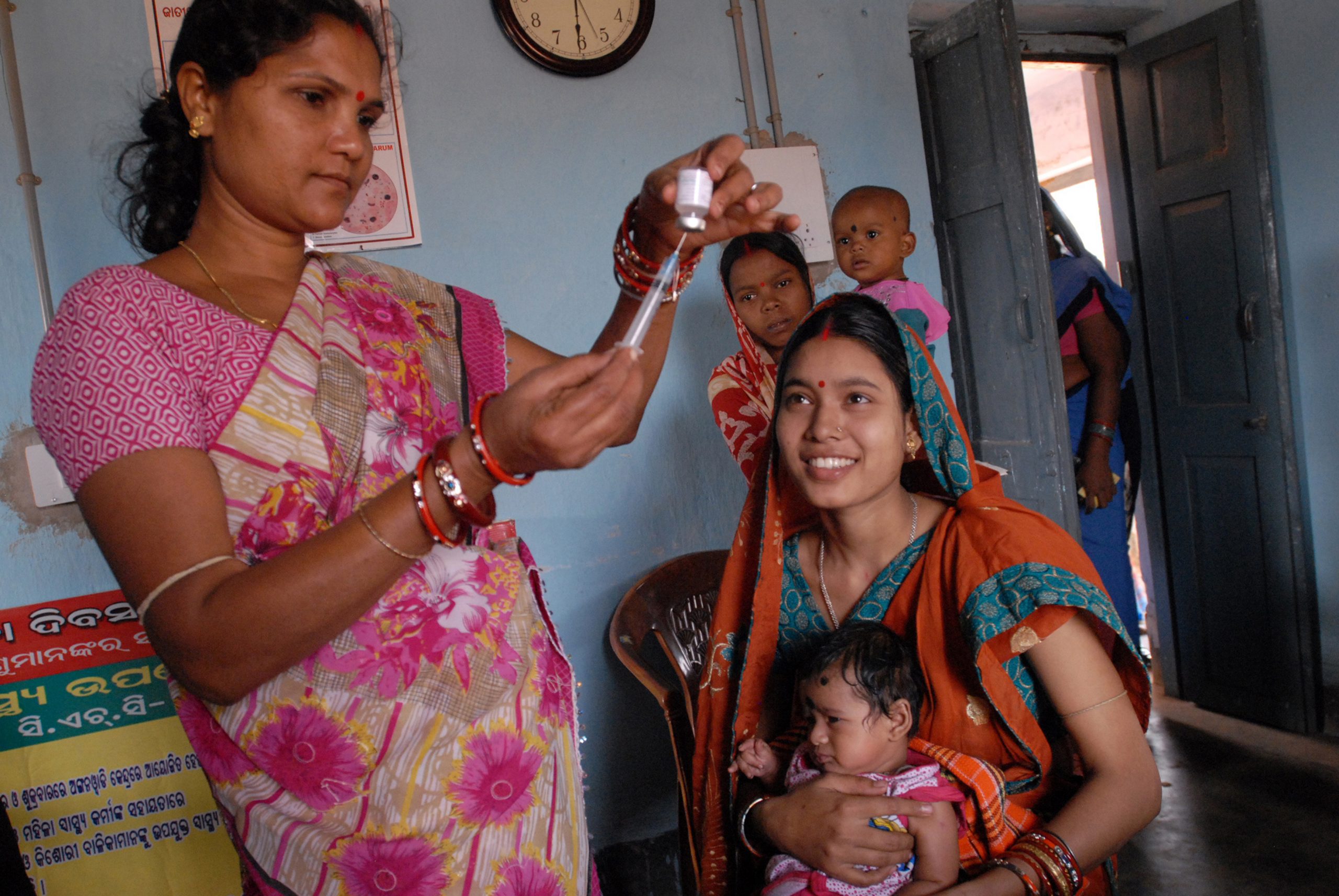
Community health worker gives a vaccination in Odisha state, India © Pippa Ranger / FCDO - Flickr
The role of community health workers in future proofing health systems in fragile and conflict-affected settings
1 July 2021
Missed this event? Read Joanna Raven’s presentation and watch the recording of the session here.
Community health workers (CHWs) play a vital role in health systems, especially in fragile and conflict-affected settings (FCAS). Additionally, COVID-19 has revealed specific inequities within health systems in FCAS.
To narrow the gaps more effectively in the future, certain issues need to be addressed.
- First, improved integration between CHW programmes and the wider health systems is needed to maximise the benefits of this partnership.
- Second, future-proofing health systems will benefit from the flexibility of roles of CHWs in changing contexts.
- Third, CHW programmes in conflict-related contexts need to be able to work in contested political contexts.
- Finally, FCAS may present particular challenges for the mental health of both the population and those providing support, including CHWs.
If these areas can be addressed, CHWs will have a greater role in future-proofing health systems in FCAS. This session (held on 8th July 2021) – a collaboration between the Thematic Working Groups on Community Health Workers and Fragile and Conflict-Affected Settings [open in new tabs]- addressed these points.
Agenda
Chair-cum-scene-setting presenter: Sally Theobald (ReBUILD/ReBUILD for Resilience)
Integration between formal and informal CHWs/programmes and the formal/wider health system in FCAS contexts: Mushtaq Khan, Health Advisor, IRC in South Asia and MENA
The comparative agility of the community health worker cadre in fragile & conflict-affected contexts: Joanna Raven (ReBUILD/ReBUILD for Resilience)
Jo will share findings from ReBUILD for Resilience’s recent research on community health workers in the fragile settings of Lebanon, Myanmar, Nepal and Sierra Leone during the COVID-19 pandemic. She will outline how their roles have been adapted to help meet the needs of their communities during the pandemic, the challenges that they face and the support that is provided and needed.
The difficulty for CHWs (and supporting agencies) working in contested political contexts in FCAS: Saw Nay Htoo, Director of Burma Medical Association
‘Supporting community-based psychosocial mobile teams in North East Nigeria’: Andreas Loepsinger and Olga Rebolledo, IOM
Plenary